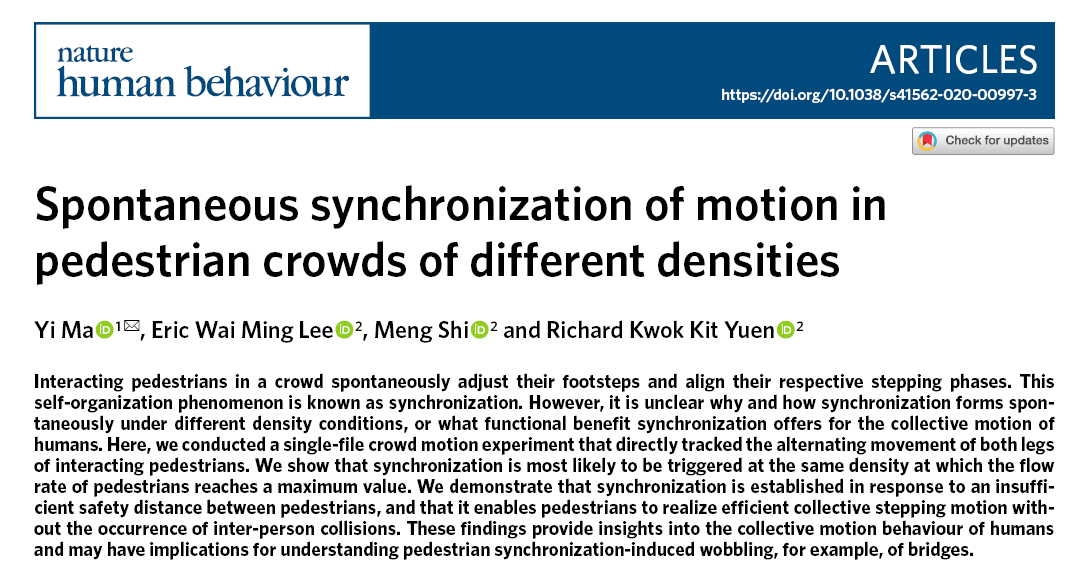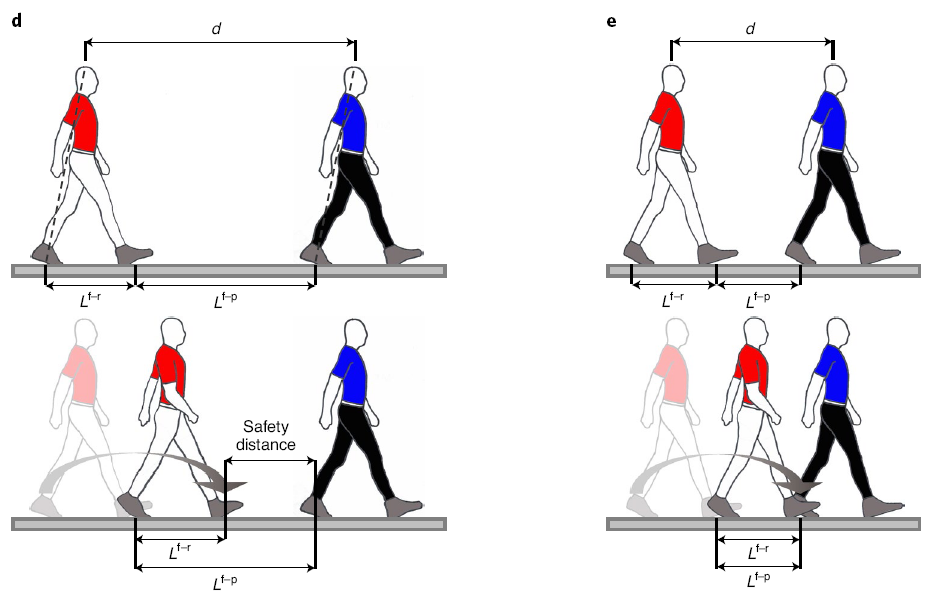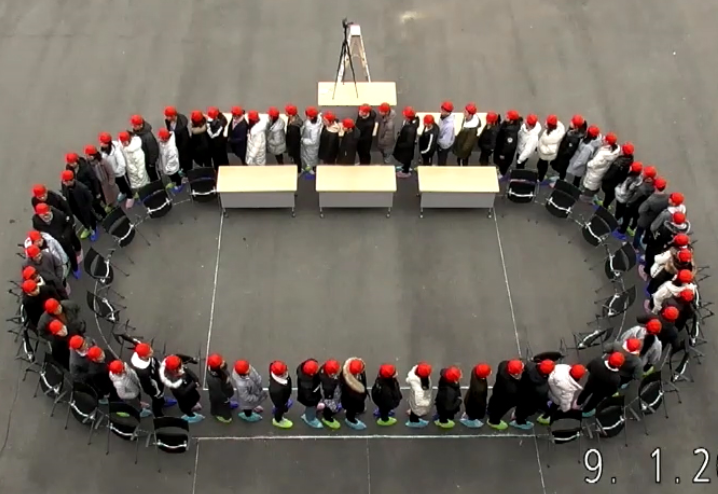In collaboration with Eric Wai Ming Lee, associate professor of the Department of Architecture and Civil Engineering, City University of Hong Kong(CUHK), Dr. Meng Shi, CUHK, and Prof. Richard Kwok Kit Yuen, CUHK, Yi Ma, associate research fellow of the Institute for Disaster Management and Reconstruction(IDMR), Sichuan University,has made significant progress in the research of pedestrian traffic flow and emergency evacuation management. The research results have been published in Nature Human Behaviour. Yi Ma is the only first author and corresponding author of the paper, and the Institute for Disaster Management and Reconstruction is the only corresponding unit.

“Interacting pedestrians in a crowd spontaneously adjust their footsteps and align their respective stepping phases. This self-organization phenomenon is known as synchronization. However, it is unclear why and how synchronization forms spontaneously under different density conditions, or what functional benefit synchronization offers for the collective motion of humans. Here, we conducted a single-file crowd motion experiment that directly tracked the alternating movement of both legs of interacting pedestrians. We show that synchronization is most likely to be triggered at the same density at which the flow rate of pedestrians reaches a maximum value. We demonstrate that synchronization is established in response to an insufficient safety distance between pedestrians, and that it enables pedestrians to realize efficient collective stepping motion without the occurrence of inter-person collisions. These findings provide insights into the collective motion behaviour of humans and may have implications for understanding pedestrian synchronization-induced wobbling, for example, of bridges.” (Abstract)

A total of 70 volunteers were recruited in SCU. The experiment was conducted in a simulated one-way channel located in IDMR.

The basic research results published by Nature Human Behaviour is one of the major breakthroughs that IDMR has made in recent years, which greatly promotes the discipline development of IDMR. In addition, this is the first paper published in Nature Human Behaviour by universities in central and western China. It is also one of the few full-text research papers SCU has published in natural science journals regarding traditional transportation planning and management, emergency technology and management in China. It indicates that IDMR has entered the international forefront in the research of this academic subject.
Graduated from the Department of Architecture and Civil Engineering, CUHK, Yi Ma joined IDMR, SCU in 2018. He is now an associate research fellow, focusing his research on transportation planning and management, emergency technology and management, and the interdisciplinary research involving the aforementioned fields.
This research was supported by the National Natural Science Foundation of China (grant number 71901156), Strategic Priority Research Program of the Chinese Academy of Sciences (grant number XDA23090502) and Fundamental Research Funds for the Central Universities.
Nature Human Behavior is a comprehensive sub journal of the Nature group, which reports human behavior. It publishes about 100 papers every year, and the publishing rate of domestic scholars is about 3% (data source: JCR).
Article link:https://www.nature.com/articles/s41562-020-00997-3
